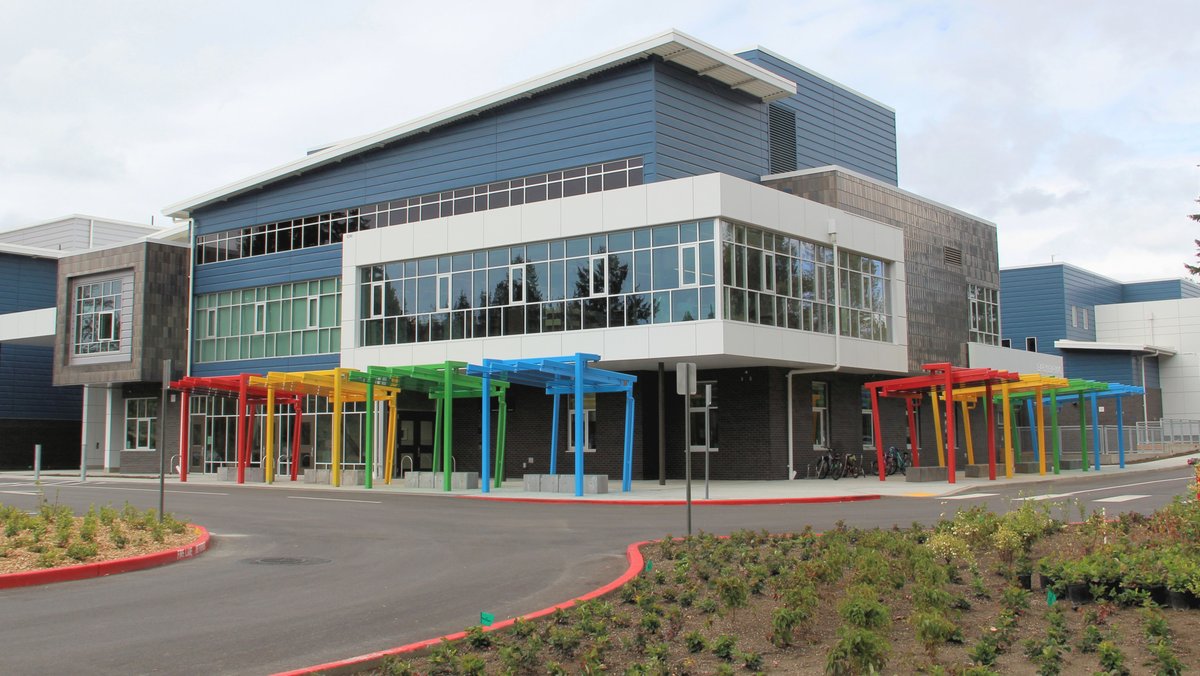In this blog, we aim to assist K-12 capital project teams and owner’s representatives in Washington State by clarifying the commissioning process for school projects. We’ll highlight the differences between the Washington Sustainable Schools Protocol (WSSP) and the Washington State Energy Code, Commercial Provisions (C408), and offer insights for crafting effective Requests for Qualifications (RFQ) or Requests for Proposal (RFP), alongside tips for selecting the right commissioning firm.
Effective building commissioning ensures efficient, on-budget, and on-schedule project delivery—crucial for educational environments to foster learning through optimal comfort and lighting. Selecting an experienced commissioning team is key to fulfilling bond promises with quality, timely, and budget-conscious building projects.
The 2018 Washington State Energy Code, with the impending 2021 update, mandates commissioning services focusing on operational efficiency. The process involves thorough reviews of equipment installations, testing, adjusting, balancing, and performance, ensuring resolution of any issues.
The WSSP, mirroring LEED’s sustainability standards, mandates additional commissioning aspects for state-funded school projects. The 2023 revision introduces requirements for building envelope commissioning, occupant training, and warranty support, aiming for comprehensive energy efficiency and sustainability.
Significant WSSP commissioning updates include:
- Fundamental Commissioning (E4.0): Now requires post-occupancy reviews to ensure sustained building performance.
- Enhanced Commissioning (E4.1): Emphasizes early-stage engagement for project requirement reviews, adding value and facilitating WSSP compliance.
- Building Enclosure Commissioning (E6.0): Ensures envelope integrity throughout the commissioning process, contributing to energy savings and extending building lifespan.
- Energy Measurement & Verification (E4.1.1): Supports compliance with the Washington Clean Buildings Performance Standard through accurate energy use documentation.
These updates underscore the importance of selecting a commissioning provider with specific expertise in WSSP and Energy Code requirements to optimize project outcomes and ensure compliance.
When seeking commissioning services, consider the following tips to ensure a successful partnership:
- Define Clear Sampling Rates: Specify expectations for system testing and verification in your RFP to prevent discrepancies between proposals.
- Require WSSP Experience: Choose providers with proven WSSP commissioning track records to secure state funds and meet specific sustainability goals.
- Demand Transparent Pricing: Request detailed pricing assumptions to avoid unexpected costs and facilitate proposal comparisons.
- Specify Staffing Plans: Ensure that key personnel are dedicated to your project to maintain quality and consistency.
Effective commissioning, particularly under WSSP, can be complex but immensely beneficial, leading to timely, budget-friendly, and efficiently operating buildings. Leveraging these tips can simplify compliance and ensure a smooth commissioning process.
The Performance Validation (PV) Team, with over 25 years of experience and more than 200 WSSP-certified projects, is your go-to source for expert commissioning services in Washington State. Contact us to enhance your next K-12 project with our proven commissioning expertise.

